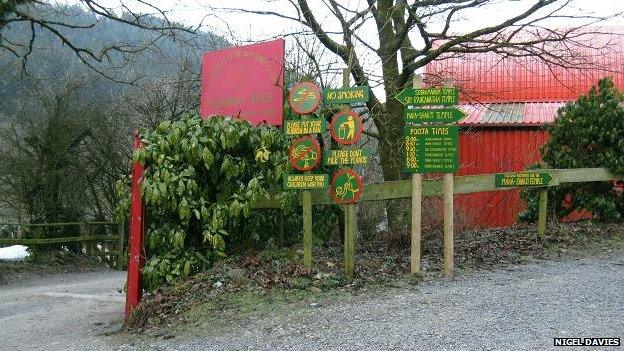Welsh children's respite care cut due to hospice funding 'crisis'
- Published
Lisa and Matthew Williams say Ty Hafan gives a lifeline to their family
Funding for Wales' children's hospices is reaching "crisis point" amid calls for more public funding to stop them cutting respite care for sick children.
They get on average less than 10% of funding from the Welsh Government, lower than for other UK countries.
One family whose son needs 24-hour care said the lack of funding made them feel "the government couldn't care less about families like theirs".
The Welsh Government said it was discussing funding needs with hospices.
Children's hospices in Scotland get more than half of their funding from the Scottish government, external while England's children's hospices get 21% of their cash from the public purse.
Hospices provide specialist one-to-one care and outreach services to children and their families, including end-of-life and crisis care, plus respite help to full-time carers.
The two children's hospices in Wales, Ty Hafan near Cardiff and Ty Gobaith near Conwy, rely on public donations to survive.
But they say uncertainty around funding affects their ability to plan and one said they were "living from hand to mouth, year to year".
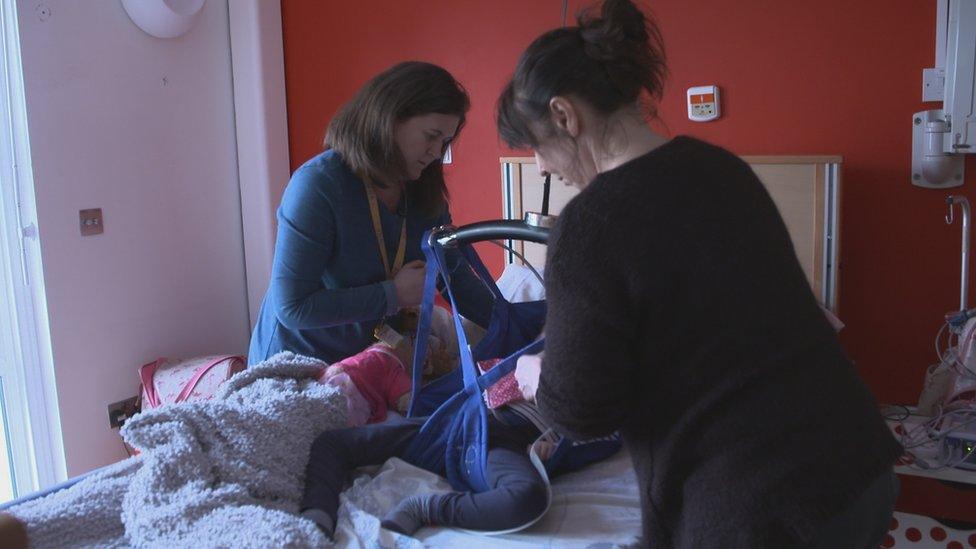
Ty Gobaith says it needs more money to provide "comfort and security" to the charity
"Wales has the opportunity to be the leading nation for hospice care for children," said Andy Goldsmith, who runs Ty Gobaith.
But he said more government cash was needed to provide "comfort and security" to the charity.
Due to the financial strain on the Ty Hafan hospice in Sully, Vale of Glamorgan, the charity said it had been forced to prioritise families with immediate need - so respite care to families has been cut in half.
"Ty Hafan's hitting crisis now," said Carol Killa, the hospice's head of care.
"We're sort of losing the ability to provide the respite that these families so desperately need just to keep going on a day-to-day basis.
"It's been with a lot of heart searching and great sadness that we've had to decide to make the changes that we've made over the last year, so that we can meet the clinical end-of-life demands alongside the respite care."
Ty Hafan, which costs £4.5m a year to run, will revisit whether it can revert to providing more respite care but it said it depended "on the balance between the needs of families, funding available and the demand for clinical and end-of-life care".
What does respite care mean to families?
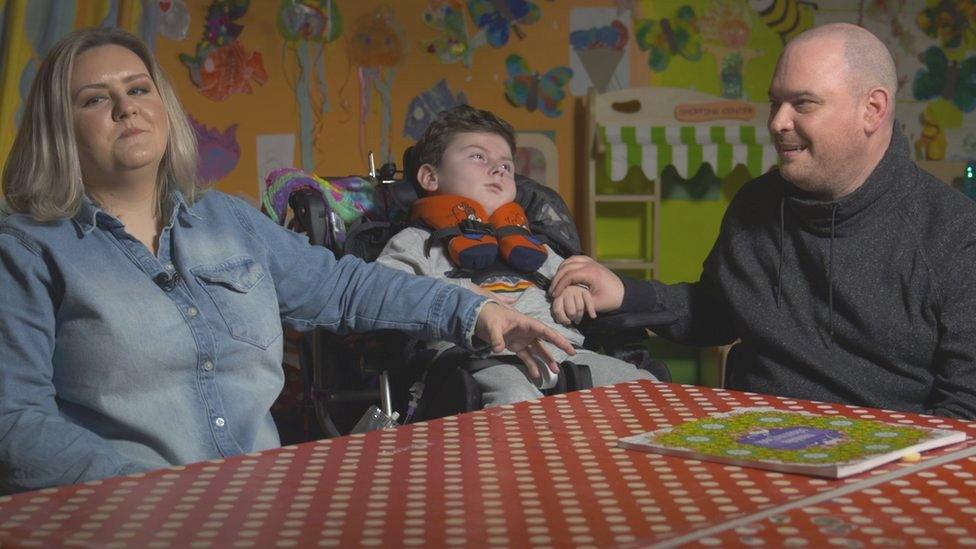
The Williams family feel "the government couldn't care less about families like theirs"
Lisa and Matthew Williams are full-time carers to their eight-year-old son and rely on Ty Hafan for respite care.
Macsen has a rare condition called Grin 2-A, external as well as other conditions like epilepsy, cerebral palsy and scoliosis and requires 24-hour care.
He suffers multiple seizures a day and some can last up to half an hour.
The family said they "don't know what they'd do without" the hospice.
"Unless we're here we don't get a day where we're not doing something for Macs or with Macs, we don't really have any kind of a life together," said Mrs Williams.
"It's hard with our other son as well.
"People don't realise what we go through on a day-to-day basis and I think we're all so tired people aren't shouting about it. And then I think we are lower down the government's priority list then."
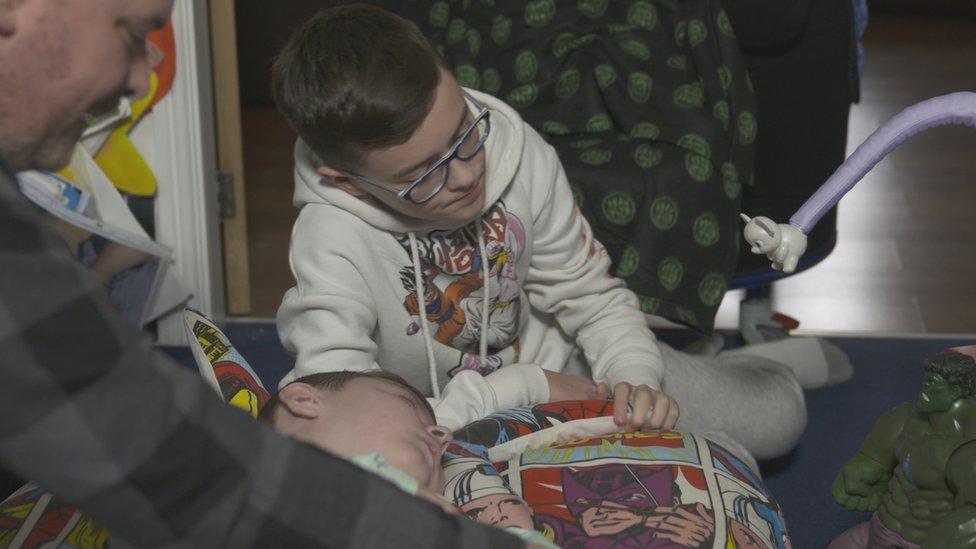
The Williams family try to make time for their son Ioan as well as care for Macsen
Mrs Williams suffers from chronic migraines and endometriosis while her husband has a degenerative disease called Charcot-Marie-Tooth, external.
The couple said their health became worse the longer they went without a weekend of respite care at Ty Hafan.
They said they were "always on the edge" before respite stays because the period in between is so long.
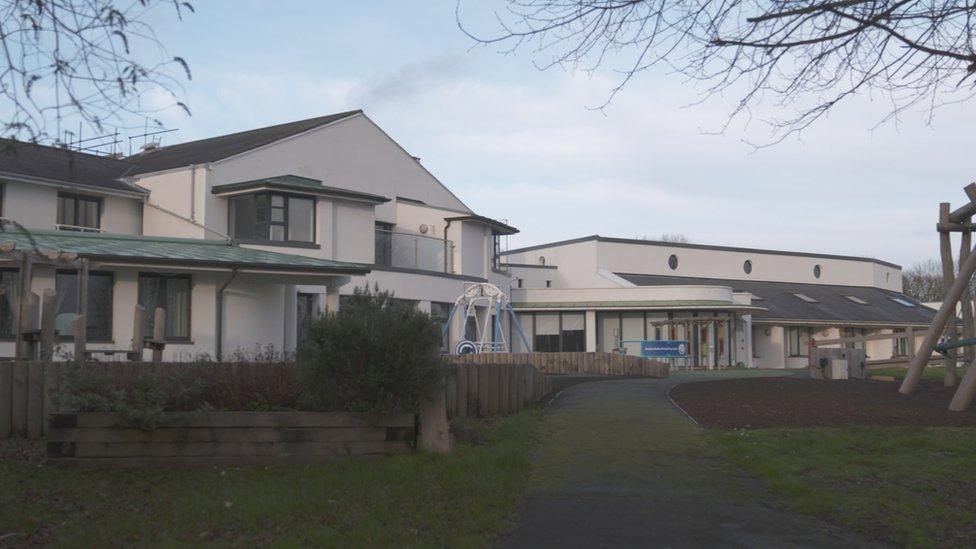
Ty Hafan opened in 1999 and is undergoing a £1m renovation
Funding for children's hospices in Wales - which comes from local health boards rather than a central grant - has not been reviewed since 2009.
"This should now be an integral part of how our health services are funded," said Dawn Bowden, who is a member of the assembly's cross-party hospices and palliative care group.
She said she did not want to see Wales' children's hospices constantly relying on charitable donations.
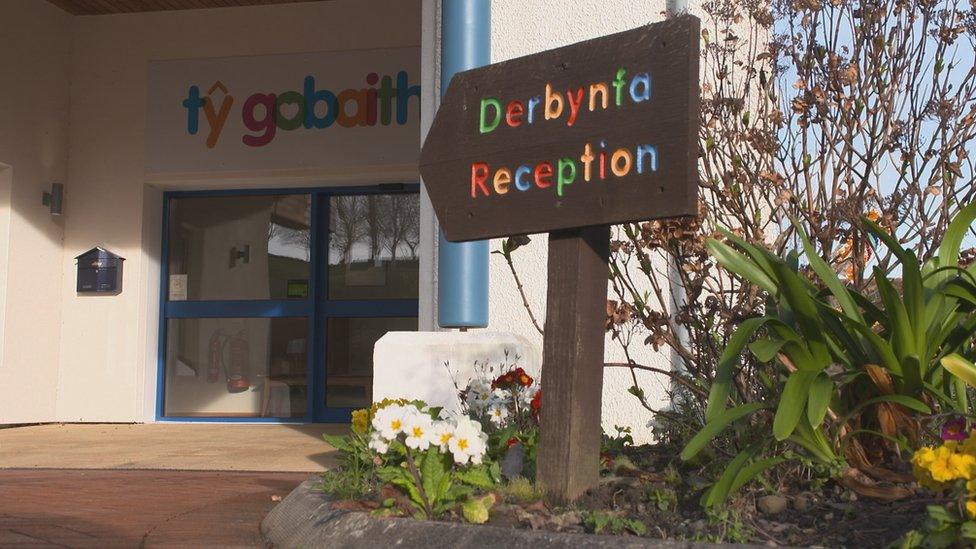
Ty Gobaith children’s hospice on the banks of the River Conwy has five beds and costs £2.5m a year to run
Mrs Bowden said "the sooner we can get something in place the better", although she did admit decisions around funding were "complex".
"I would hope that the Welsh Government will take the view that this is a service that is vital to those children with life-limiting conditions and their families and that they'll respond to that as soon as possible," she said.
The Welsh Government said hospices were "central to our approach to end of life care" and added the "support they provide to patients, families and carers cannot be underestimated".
"We are working with Ty Hafan and other hospices to understand what funding is required to meet their future needs and ensure they continue to provide first-rate care and support," said a spokesperson.
Watch more on Wales Live at 22:30 GMT on Wednesday on BBC One Wales and on the BBC iPlayer.
- Published30 July 2019
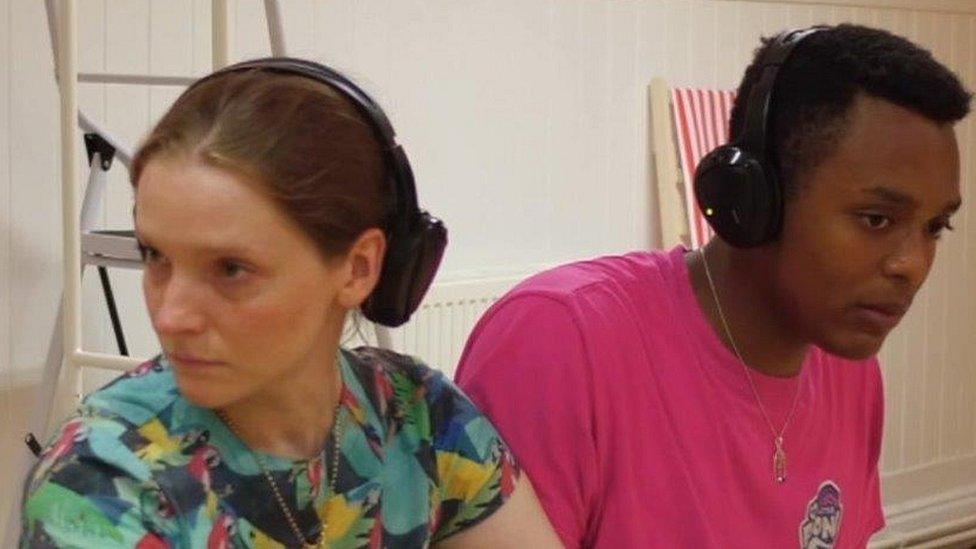
- Published26 June 2019
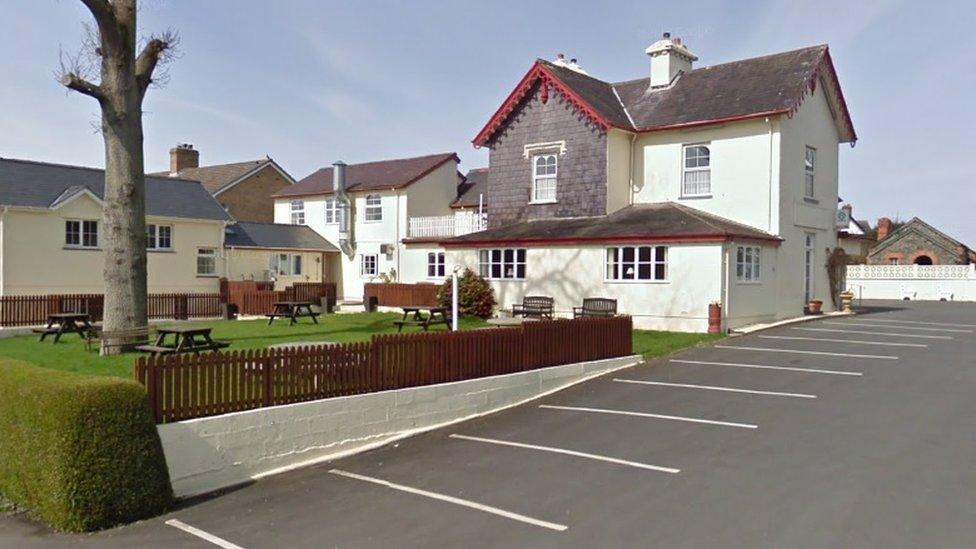
- Published28 October 2014
